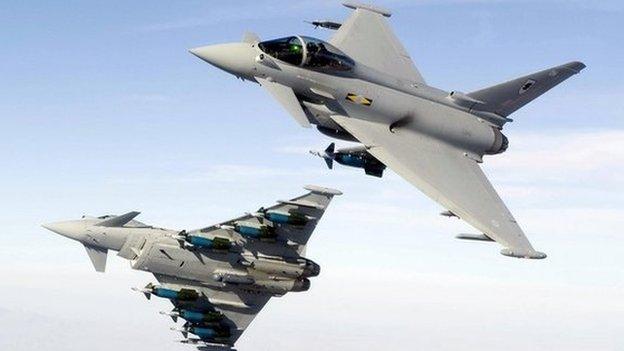Russian military planes 'disrupted UK aviation'
- Published
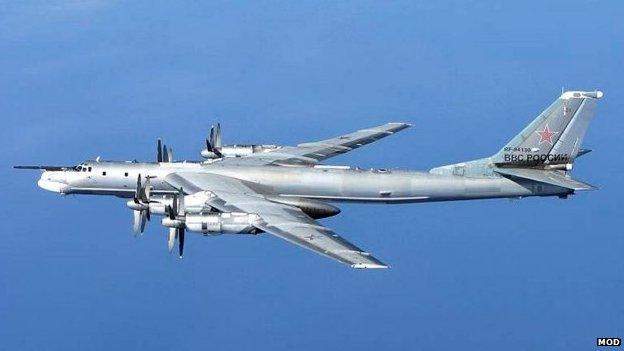
Two Russian Tu-95 Bear H aircraft were "escorted" by RAF jets (file photo)
Russian military planes flying near UK airspace caused "disruption to civil aviation" on Wednesday, the Foreign Office has said.
It said the two Russian planes did not enter UK airspace, but the manoeuvres were "part of an increasing pattern of out-of-area operations" by Russia.
The planes were "escorted" by RAF jets "throughout the time they were in the UK area of interest", officials added.
Russia's ambassador said the patrols were "routine" and dismissed concerns.
Typhoon fighters were scrambled from RAF Lossiemouth and RAF Coningsby to escort the Russian aircraft, and the RAF said the mission lasted 12 hours.
Russian military pilots are becoming more and more aggressive, flying at escorting RAF aircraft and keeping radio and transponder silence, defence analyst Paul Beaver says
The Foreign Office refused to give details of the disruption to civil aviation.
BBC defence correspondent Jonathan Beale said the Russian planes - two Tu-95 Bear H bombers - came within 25 miles of the UK.
They travelled from the north, past the west coast of Ireland and to the English Channel before turning and going back the way they had come, he said.
He said the bombers did not file a flight plan, did not have their transponders switched on and "weren't talking to air traffic control".
'Calm and focused'
Russia's ambassador to Britain, Alexander Yakovenko, met with British officials to discuss the incident, the Russian embassy said.
In a statement, the embassy said he "stressed that the concerns of the British side are not understandable given that two Russian military aircraft were on a routine air patrol duty over the high seas of the Atlantic Ocean."
Mr Yakovenko also said they complied with legal norms and "cannot be regarded as threatening, destabilising or disruptive."
This is the latest in a series of similar incidents involving Russian aircraft, and last month Foreign Secretary Philip Hammond said the UK was concerned about the "extremely aggressive probing" of its airspace by Russia.
In a statement on the RAF website, external, one of the controllers involved in the mission said: "Thanks to our integration with air defence systems across Nato, we were able to begin mission planning early and therefore were ready to act in good time."
The controller added: "The operations room was both calm and focussed.
"We constantly train for these scenarios so that we are well rehearsed and ready to maintain the integrity of our airspace."
The RAF said air-to-air refuelling for the Typhoons was provided by RAF Voyager aircraft from RAF Brize Norton.
- Published1 December 2014
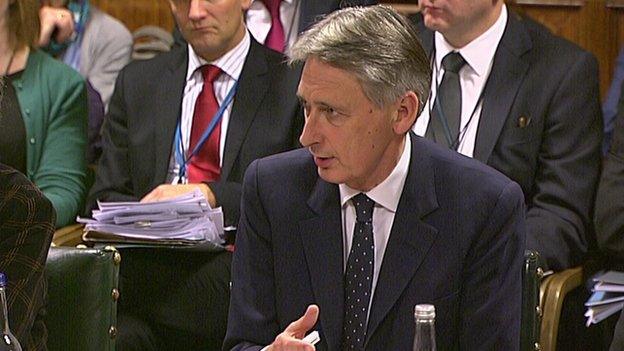
- Published10 November 2014
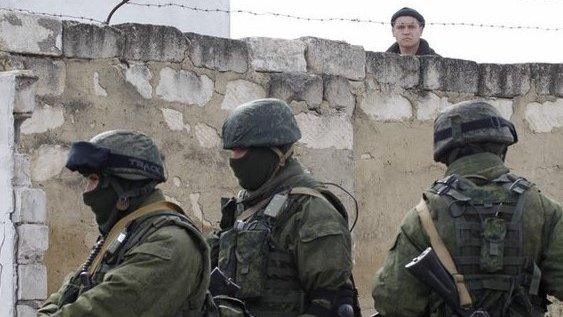
- Published1 November 2014
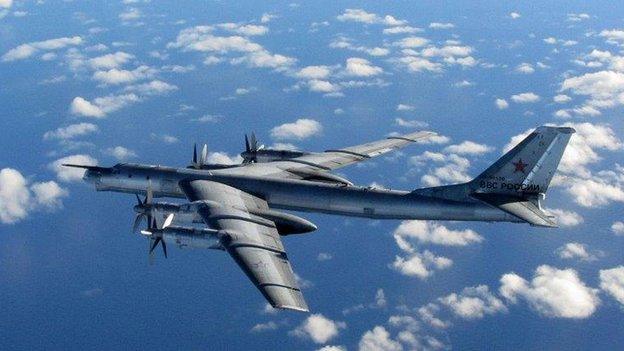
- Published30 October 2014
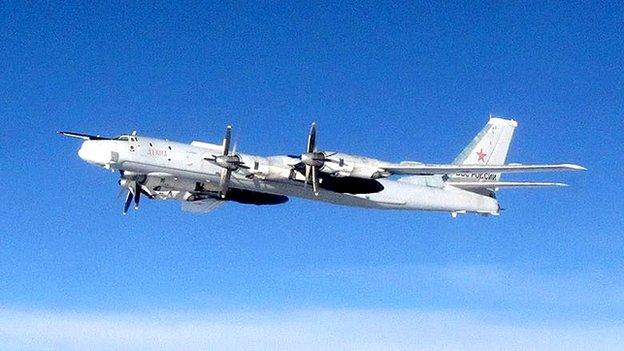
- Published29 October 2014
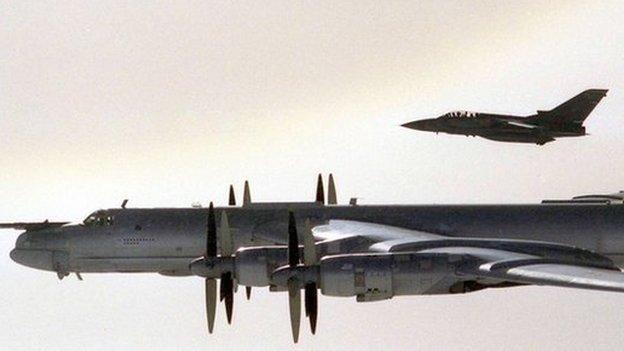
- Published24 April 2014
